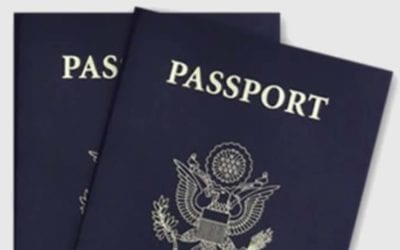On Wednesday, March 30th, 2011, representatives of the Consumer Travel Alliance, Consumers Union, Consumer Federation of America and the National Consumers League met with representatives of the Office of Management and Budget and the Department of Transportation (DOT) to discuss the pending DOT rulemaking, “Enhancing Airline Passenger Protections” (DOT-OST-2010-0140).
Here is their presentation to the executive branch regarding the proposals. Each section was a printed slide handed out prior to the meeting.
DOT proposed rulemaking overview
This rulemaking is the most important improvement in passenger rights since airline deregulation.
It enhances competition. Passengers can comparison shop for total airline prices — including airfares and airline fees — across airlines
It provides legal standing. Including the airlines’ customer service plan in the contract of carriage allows travelers legal protection for customer service failures.
Other provisions extend and enhance regulations already in effect.
Hidden airline fees
Price competition has been stifled because the full cost of travel is not disclosed or is made difficult to compare because airlines have “unbundled” their airfares.
– Airlines now charge additional, separate fees for services that were once included in the base price checked baggage, boarding options, seating preferences and meals.
– Tens of millions of business and leisure air travelers are affected every year.
– Last year, U.S. airlines collected more than $9.2 billion in hidden fees.
– Ancillary fees can double the base fare.Airlines hide their ancillary fees from more than 50% of air travelers because they refuse to disclose these fees to travel agents — online, Mom & Pop and corporate agencies.
A deceptive and misleading airline marketplace
• Airlines are hiding their fees to deceptively make their prices appear lower than they actually are.
• Millions of consumers and businesses are being harmed because they cannot calculate or compare the full cost of air travel while shopping.
• In a survey last year, two out of three travelers said they had been surprised at the airport by unexpected fees.
• Corporations cannot efficiently manage million-dollar travel budgets without disclosure of ancillary fees. And business travelers find it more difficult to document expense reports.

We need full airline price transparency that allows consumers to make informed choices.
Airline ticketing choice solution
Require airlines to disclose and make available all of their fees through any channels they decide to use to sell airline tickets.
There is no reason to hide airline fees other than to mislead consumers.
This is an issue of insuring that a competitive market can function effectively and the consumers can make informed decisions.
Airline travelers’ unique legal limbo
America’s airline passengers have the legal rights of medieval serfs.
Federal preemption precludes taking airlines to State courts or small claims courts.
Supreme court precedent holds that the airlines are only responsible for what is found in their contract of carriage. The only passenger commitment found in current contracts of carriage is to transport passengers from Point A to Point B.
DOT, today, is sole the judge and jury for airline vs. consumer issues.
This rulemaking proposes to make the enhanced customer service plans (also a section of this rulemaking) a part of the contract of carriage. This is an enormous change that will finally provide legal standing through the courts for passengers.
We fully support the remainder of the DOT proposals that enhance and extend current rules and regulations.
• Extended tarmac-delay rules to foreign carriers and smaller airports plus, expands tarmac-delay data collection
– Growth of airline alliances and code-shares arrangements have changed the face of travel. There are virtually no true “foreign carriers.”
– Data is already being collected by the carriers to determine how best to deal with these delays. This rulemaking requires that to continue.• Clarification of “customer service plans”
Outlines the basics of an airline customer service plan• Response to consumer problems
Requires that airlines create a system to deal with customer service problems and that airline define customer service responsibilities for domestic and international code-shares and alliances• Dealing with oversales and bumping
Updates fines and requires compliance with passenger notification• Full fare advertising
Mandates that airlines use full-fare advertising across all marketing methods. This affects ancillary price transparency as well• No post-purchase fare increases
Bans any price increases after payment for airfares.• Notifications of flight changes
Informs passengers about changes in flight status• Choice of forum provisions
Allows passengers to bring suit against airlines in any court within the passenger’s jurisdiction
These comments will be entered into OIRA/OMB records.

Charlie Leocha is the President of Travelers United. He has been working in Washington, DC, for the past 14 years with Congress, the Department of Transportation, and industry stakeholders on travel issues. He was the first consumer representative to the Advisory Committee for Aviation Consumer Protections appointed by the Secretary of Transportation from 2012 through 2018.



